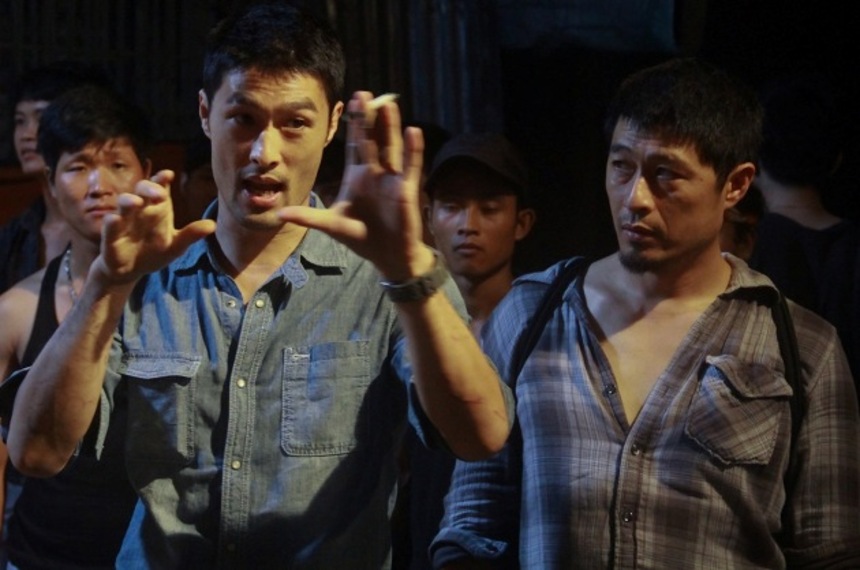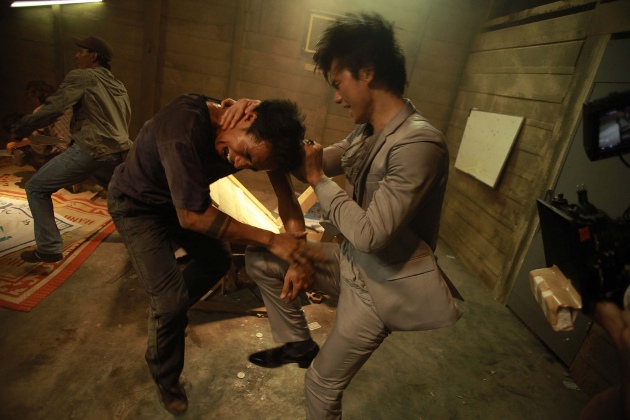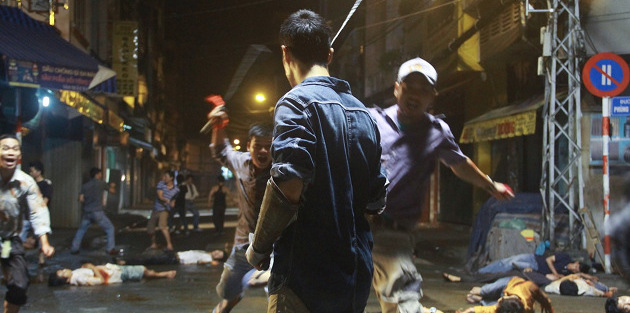Vietnamese Directors Speak Out On CHO LON and Censorship

The banning of the Nguyen brothers' Cho Lon caused extreme rage in Vietnam yesterday. And not just for filmmakers or film geeks, but all over the country; I haven't seen anything like this before. Previously banned films came and went quietly, but Cho Lon is now the focus of a national conversation.
The public reactions from Johnny and Charlie Nguyen to the verdict definitely fuelled the debate and led many people to vent their disgust at the Censorship Board. After the banning, actor Johnny Tri Nguyen said everything he needed to in just one sentence: "What's more to be said? It's like losing my son."
His brother Charlie Nguyen, beloved director of The Rebel and Cho Lon, also felt immense sadness at the news. His response from the set of his new film was diplomatic and illuminated the steps they have taken so far to get Cho Lon across the line.
"We edited the script for Cho Lon three times. The Vietnam Film Department wanted to change all the content, and the screenplay of Cho Lon, but it's something we absolutely can not do because we must re-shoot many scenes but investment funds are limited. We have cut almost all the violent fighting scenes, and added some scenes with the police and I did everything I can do without changing the storyline.
If the production company continues to seek solutions and find the appropriate funding source, maybe the film can be re-shot and the storyline edited. But to be honest, I don't know if I have any further interest and resources to do so."
This decision has also made other film directors in Vietnam worry about their future. People are now asking if Vietnam should continue making fiction movies that connect with social reality, or should we just make cheap unfunny films to satisfy audiences (and the Censorship Board)?
Another violent film that was initially blocked and requested to edit some scenes was The Race, soon to be released in July. But it wasn't banned. What's the difference?

The Race - Another ultra-violent Vietnamese film to be released in July
To my mind it's all about the reaction to the request for changes. Following the initial decision to block the movie back in April the Nguyen brothers tried to respect the process and edit a less violent version. However they still published some critical thoughts on their public Facebook account, which has many followers. Although they deleted the Facebook statuses which criticized the Censorship Board, many people, including reporters, still repeated them, and openly criticized the Censorship Board. The aggressive advocacy of the media made the "Elders" and Board feel uncomfortable.
In comparison, the crew of The Race quietly edited in the shadows, gently following orders from the Board until they were granted a release date. If the Nguyen brothers had also kept quiet and re-edited their film with no fuss, Cho Lon may have also been granted a release this June.
Cho Lon might be a sacrifice for cinema, but to me, the Nguyen brothers are the bravest men in the film industry in Vietnam. This case helps audiences to see the truth behind Film Review Boards and to understand the difficulties of making a movie in Vietnam. If The Raid, Crows Zero or Sha Po Lang were made in Vietnam, I don't even think they'd exist.
Other directors in Vietnam have also shared their thoughts about censorship. Dung Nguyen Quang, the director of box office hit Lady Assassins 3D, replied with sarcasm:
"If I made a movie about the Central Board of Film Evaluation and showed that they're very wise, have integrity, spend state money fairly with efficient investment, help the filmmaker and develop Vietnam's film industry ... then my movie won't be approved. Because it doesn't happen in real life. Vietnam Film Department is going to be hell for all filmmakers."
Tuan Nguyen Huu, indie director of For June, stated the importance of changing the Law:
"What we need to do is study the whole Law of Cinema, requesting to amend some additional sanctions for the authorities who have film evaluation function. To do that, the large film companies should rely on their inherent relationship with the state management, and require or lobby to put this on the agenda of the National Assembly. They absolutely can do it in the next closest Congress Meeting."

In 1988, South Korean President Roh Tae Woo officially removed the censorship of political content for Korean cinema, allowing directors to exploit thorny social themes and subjects closer to real life. I think the Law in Vietnam is hard to change, but it may be the only way to remove the barrier to creativity. If Cho Lon can't pass the censorship in Vietnam, I think it should at least be shown in some international film festivals like recently banned Korean film Moebius. You don't have to kill off a movie like this with censorship.

Do you feel this content is inappropriate or infringes upon your rights? Click here to report it, or see our DMCA policy.






